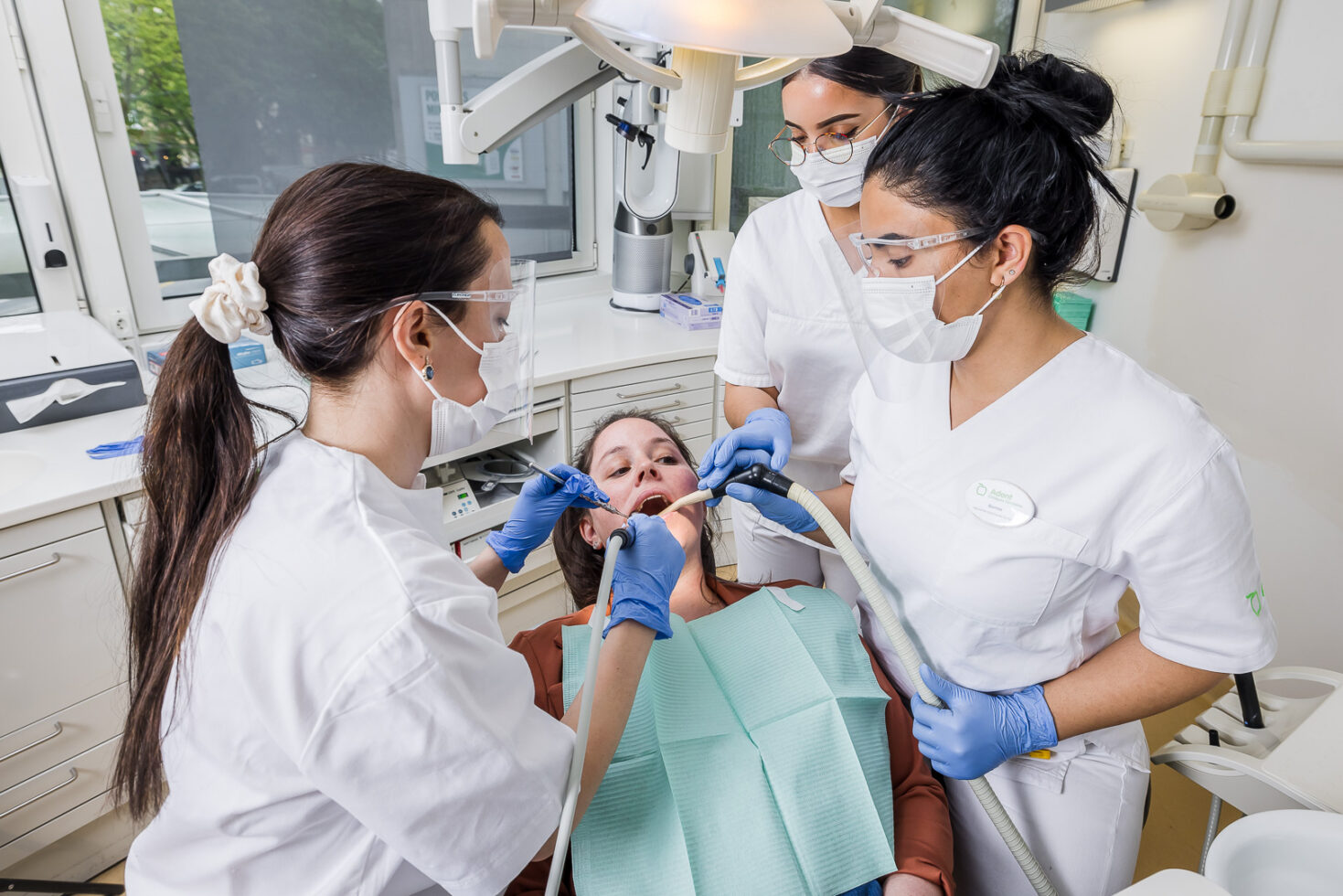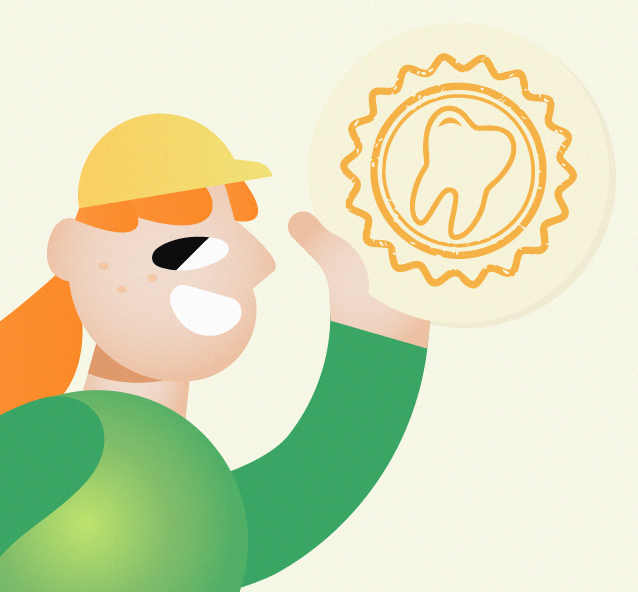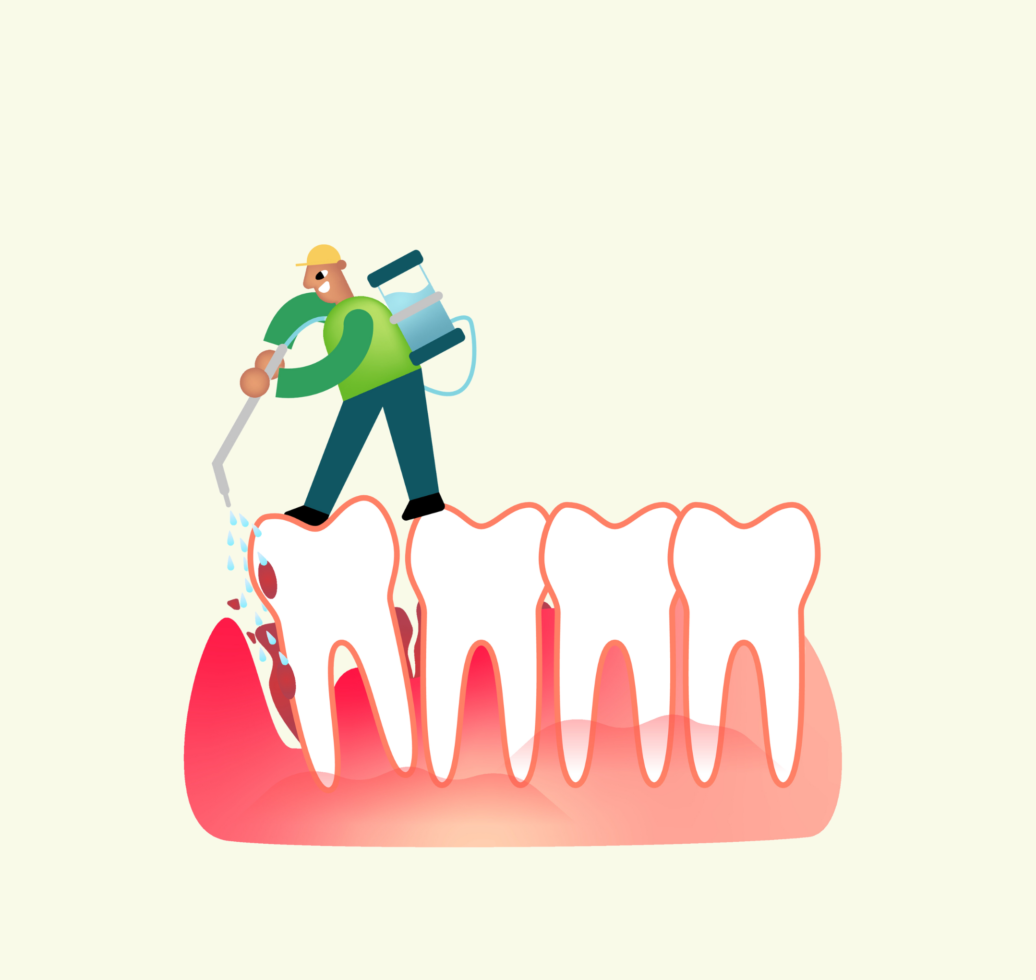Wisdom teeth extraction: understanding the different stages
The extraction of wisdom teeth is becoming increasingly common, and is recommended from adolescence onwards. It’s an operation that tends to arouse fear and apprehension.
Yet today’s technologies are such that the risks of wisdom teeth surgery are virtually nil, and there is a wealth of information available to minimize post-operative pain and discomfort. But you need to know where to find them, and be sure of their veracity.
This article aims to answer all your questions about this operation and give you the keys to healing properly and quickly.

FAQ – Wisdom teeth
What is a wisdom tooth?
This is the first thing you need to know before talking about surgery. Wisdom teeth are the last teeth to grow in, usually between the ages of 17 and 25. These are the last molars. However, sometimes they grow well after 25 years, and there’s no need to worry if this is the case.
Have you ever wondered about the origin of this name?
To understand where the term “wisdom tooth” comes from, we need to go back to antiquity. According to the Greek philosopher Cleanthe, the term is linked to the period in which these teeth appear, corresponding to the time when human thought matures, hence the term “wisdom”.
Why do wisdom teeth need to be extracted?
This operation has become very common and necessary as the human jaw has become smaller over the evolution of the human hope. As a result, we have less space available for these wisdom teeth to grow in properly. This increases the risk of pain and complications.
Lack of space is the main reason for tooth extraction, but there are other factors as well. Wisdom teeth may have to be extracted because they’re in the wrong position, potentially damaging, or already damaging, the rest of your teeth. This can cause misalignment of the rest of your teeth. Finally, the last common reason is that these wisdom teeth lead to cavities or bacterial problems because they are poorly maintained or difficult to care for.
At what age should wisdom teeth be extracted?
In view of the risks and complications associated with the appearance of wisdom teeth in jaws that are often too small, the aim is to prevent the situations mentioned above. Wisdom teeth are therefore often extracted during or at the end of adolescence, until the roots have fully formed.
More generally speaking, the ideal time for this operation is determined by the day when the wisdom teeth will not have enough space to erupt fully. The ideal time is between the ages of 18 and 20, as the roots of the wisdom teeth are still short and partially formed, which facilitates the operation and healing.
However, if wisdom teeth are a problem at an older age, surgery is still possible and recommended, even if it’s more complex after the age of 30, since wisdom teeth are fully rooted in the mouth.
Under what conditions can wisdom teeth extraction be avoided?
Due to the natural evolution of human jaw size, wisdom teeth may never appear. It’s also possible that some people – lucky given the percentage of the population – have enough room for these teeth to grow properly. These are the two cases where wisdom teeth extraction can be avoided.
Generally speaking, to determine whether wisdom teeth extraction is necessary, the dentist will assess the available space and potential risks by means of an X-ray.
What is the procedure for removing wisdom teeth?
You have two choices. Extraction under local or general anaesthetic. If you want or need to have all four wisdom teeth extracted at once, general anesthesia is recommended.
Wondering how a tooth is extracted? It all starts with an incision in the gum to gain access to the tooth and jawbone. Next, the bone around the tooth is milled so that it can be extracted. Finally, once the tooth has been completely extracted, the space is closed with sutures that are generally absorbable, meaning that they will disappear on their own around 2-3 weeks after the operation. If they are not absorbable, they will be removed at a subsequent consultation.
How long does it take to remove wisdom teeth?
A wisdom teeth extraction operation usually takes less than 45 minutes. If performed under general anaesthetic, the operation takes around 30 minutes.
What is the pain after wisdom teeth surgery?
The common effects of such an operation are swelling of the mouth and the appearance of hematomas around the jaw. Swelling is not systematic and generally begins to disappear 3 days after wisdom teeth surgery. The patient may have difficulty opening his or her mouth and experience muscle pain in the jaw. There may also be some blood in your saliva during the first week after surgery.
What are the complications associated with wisdom teeth removal surgery?
The most common complication is alveolitis. This complication occurs when the bone is no longer covered by the blood clot in the alveolus. The alveolus is the hole left by the tooth. As a result, the bone becomes very sensitive. If this happens to you, consult your dentist quickly via our dental emergency service.
The latter will treat this without any problem with a drug called Alvogyl that will relieve you. Alveolitis does not affect the quality of the healing process; it simply takes a few days longer.
Another possible complication is osteitis. This is an infection in the bone. Here too, it is easily treated with specific drugs. There are other possible complications, as after any operation, but for the most part they are no longer specific to wisdom teeth surgery.
How to relieve pain after wisdom teeth extraction?
It all starts immediately after wisdom teeth surgery. To minimize potential pain, avoid talking for the first few minutes and hours after the operation. If you have been prescribed medication, take it as soon as possible. You can also put ice or cold around your jaw. This will reduce swelling, but should not be repeated after 24 hours.
For the following days, rest as much as possible, avoid rinsing your mouth and don’t force your jaw.
How to eat after wisdom teeth extraction?
Wondering what you’ll be allowed to eat after wisdom teeth surgery? When will you be able to eat normally again after tooth extraction? We explain everything. To begin with, for the first 24 hours after the operation, opt for a liquid diet: blended vegetables, soups, yoghurts, liquid or soft cheeses, compotes and cold drinks.
For the rest of the first week, choose a diet that requires very little chewing, so as not to strain your jaw and avoid the pain this can cause. Once again, we recommend blended or pureed vegetables, well-cooked pasta, omelettes, soup and boiled meat. You can adapt this to the evolution of your scarring by following the spirit of the recommendations.
During the second week, eating can gradually return to normal, but try to cut meat or fruit into pieces and avoid eating foods that are too hard.
See also our dietary advice to protect your teeth on a daily basis.
Our practical advice following wisdom tooth extraction
- Start by cutting out very hard or spicy foods for the first two weeks after wisdom teeth surgery.
- Avoid suctioning to keep the blood clot in the alveolus. This explains why smoking, drinking through a straw and spitting are strongly discouraged.
- Avoid consuming hot food or drinks.
- You should also avoid physical activity for 48 hours after the operation to promote healing.
- Finally, you can resume gentle brushing the day after surgery.
If you’re too apprehensive about surgery or dentists in general, even after reading this article, find out more about our medical hypnosis services. To make an appointment or for more information, please contact us.
Make an appointment




